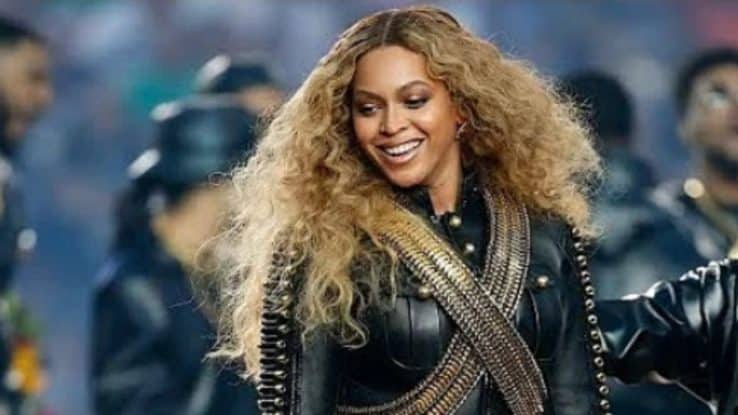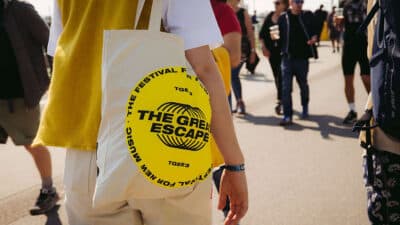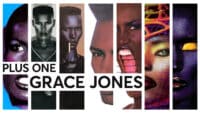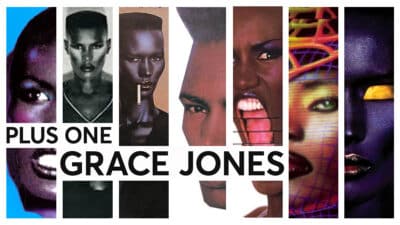Music

List
30 key moments in Black music history
In honour of Black History Month, here are 30 ground-breaking achievements by Black artists
There is no genre of music unaffected by the impact of Black artists. There is no music history without them. Western music owes a huge debt to the Black musicians who pioneered, reinvented and trailblazed – often without due credit, often despite systems designed to hold them back.
Cataloguing the entire history of Black music would take years, but in honour of Black History Month, we’ve compiled a record of just 30 key moments when Black artists changed the future of music. They’re 30 of many.
Please note that whilst the impact of Black musicians is global, this piece is focused mainly on the history of Western music.
1920: Mamie Smith records the first blues song by a Black musician
In 1920, after composer Perry Bradford went to bat for her, Mamie Smith created the first recordings by a Black singer with ‘That Thing Called Love’ and ‘You Can’t Keep A Good Man Down’ for the Okeh label. Label execs had received threats of boycotts ahead of the recordings, but Smiths record was a commercial success and opened the door for all the many generations of Black recording artists that followed.
1925: Louis Armstrong begins recording the Hot Five Sessions
Between 1925 and 1928, Louis Armstrong completed a series of recordings with his Hot Five and Hot Seven groups. These recordings were the beginning of his legacy, and his enduring impact on jazz. Armstrong was one of the key figures involved in taking jazz from its ragtime roots and elevating it to the art form we recognized today.
Armstrong was particularly influential in rewriting the role of the jazz soloist, centering the improvising soloist in the performance, a phenomena not common in any kind of music before him. He encouraged jazz musicians to be more flexible in their interpretations of melody, ushering in a sound that was as alive as it was unpredictable.
1925: Gladys Bentley begins performing at Harry Hansberry’s Clam House
Trailblazing queer musician and drag star Gladys Bentley began to make a name for herself at just 16, after answering a call for a male pianist at a gay speakeasy in New York called Harry Hansberry’s Clam House. Bentley performed in men’s attire with her hair cut short, singing her own risqué lyrics to popular songs in a growling, male-imitation voice and flirting with women in the audience.
As her fame grew, many celebrities began attending Bentley’s shows, and her audiences gre more diverse, until the repeal of Prohibition decreased the popularity of speakeasies and slowed her rise.
1938: Sister Rosetta Tharpe begins her recording career
The first major star of gospel music, Tharpe’s secular instrumentals combined with religious, gospel-inspired lyrics both shocked and delighted listeners. Later stars of rock and roll such as Elvis Presley and Jerry Lee Lewis were greatly influenced by Tharpe’s boundary-breaking sound and writing style, earning her the nickname ‘the Godmother of Soul’.
1939: Billie Holiday records ‘Strange Fruit’
Often credited as one of the founding texts of the civil rights movement, ‘Strange Fruit’ protested the lynching of Black Americans. Written and composed by Lewis Allan, the song was introduced to Holiday, who began performing it in Café Society. The song’s provocative message provoked fears of retaliation in Holiday, but she continued to perform the track in memory of her father, Clarence Holiday, also an influential musician.
1958: Ella Fitzgerald wins two Grammy Awards
Ella Fitzgerald became the first Black artist to win a Grammy in 1958 – actually, she won two of them. The legendary jazz singer won Best Jazz Performance for ‘Ella Fitzgerald Sings the Duke Ellington Songbook’ and Best Female Pop Vocal Performance for ‘Ella Fitzgerald Sings the Irving Berlin Songbook.’
1959: Fats Domino records ‘Be My Guest’
American singer-songwriter Fats Domino was one of the pioneering figures of rock and roll. His track ‘The Fat Man’ is considered by some critics to be the first true rock and roll single. This wasn’t the only genre that Domino was integral to, though – the offbeat rhythm of another track, ‘Be My Guest’, was said to be a significant influence on the development of ska.
1959: The Supremes become the most successful American vocal group
1959 was also the year of the Supremes. The group had 12 no.1 singles on the Billboard Hot 100, and were said to rival the Beatles in worldwide popularity. The Supremes would go on to have incredibly successful, decades-long careers, paving the way for future R&B and soul musicians and helping to take Motown worldwide. They were also the origin point for one of the world’s biggest music superstars – Diana Ross.
1963: Marian Anderson is the first ever recipient of the Presidential Medal of Freedom
American contralto Marian Anderson was a hugely significant figure in both music history and the civil rights movement. When the Daughters of the American Revolution blocked Anderson from singing in Constitution Hall in 1939, the incident garnered international attention, and led to the organisation of a different performance on Easter Sunday at the steps of the Lincoln Memorial. The concert was endorsed by Eleanor Roosevelt and her husband.
In 1955, Anderson became the first Black singer to perform at the Metropolitan Opera. She leant her support to the civil rights movement throughout the 1960s, and also worked a delegate to the United Nations Human Rights Committee and as a Goodwill Ambassador for the United States Department of State. In 1963, she was selected by John F. Kennedy as the very first recipient ever of the Presidential Medal of Freedom.
1967: Jimi Hendrix lights his guitar on fire
Hendrix’s 1965 Fender Stratocaster ushered in a new era of rock and roll when it burned gloriously on the stage of the Astoria Theatre. Hendrix’s instinctive guitar playing was revolutionary enough in itself, but this moment gave birth to one of music history’s most memorable onstage stunts and forever impacted the characterization of rock and roll.
1967: Fela Kuti creates Afrobeat
When young Nigerian jazz musician Kuti moved to Ghana looking for a new musical direction, he became a pioneer. Kuti innovated a mix of funk, jazz, salsa, calypso and traditional Yoruba music, a genre-smush which he called ‘Afrobeat’. Be warned: this is a separate genre entirely from the 21st century West African hip-hop subgenre known as Afrobeats.
Kuti was also deeply inspired by the Black Panther Party. Afrobeat incorporated those political leanings, with social criticism becoming a notable characteristic of the genre.
1969: The biggest Harlem Cultural Festival takes place
Singer and actor Tony Lawrence first launched the Harlem Cultural Festival in 1967. A series of concerts, shows, contests and other creative events, the festival aimed to bring life and culture to the Harlem neighbourhood in which they took place. Although early iterations featured performances from influential Black artists at the time – Tito Puente and Mahalia Jackson, to name a couple – it wasn’t until the 1969 concert series that the event really exploded.
Nina Simone, B. B. King, Stevie Wonder and many, many other huge musical acts performed, whilst community activists and civic leaders such as Jesse Jackson provided a political undercurrent to the festivities. The vibrant intersection of music and politics led the event to become informally known as the Black Woodstock.
1971: Marvin Gaye releases What’s Going On
Ranked first on Rolling Stone’s list of ‘The 500 Greatest Albums of All Time’, What’s Going On is a landmark piece of music. Soul music had never seen an album like this – one that centered itself so wholly around a single, albeit multifaceted, issue. Gaye’s masterpiece discussed what it meant to be Black in America, to experience police brutality and racial inequality, with an unprecedented frankness and a staggering level of artistry.
1973: DJ Kool Herc invents the Merry-Go-Round
In a bid to earn some extra cash, a then 18-year-old Clive Cambell and his sister Cindy came up with an ingenious business model. Clive would play hard funk records from their apartment building, and they would charge young people in the neighbourhood to come and listen. Taking the stage name DJ Kool Herc, Clive invented a technique called the ‘Merry-Go-Round’, which involved using a turntable to switch between breakbeats on two copies of the same record. This sound would become integral to hip-hop.
1977: Frankie Knuckles invents house
In 1977, DJ Frankie Knuckles began playing regularly at his friend Robert Williams’ club, Warehouse. Mixing disco classics, Eurodisco, indie soul and other genres, Knuckles soon created his own eclectic dance sound. Warehouse was, at that point, largely a club for Black gay men – with Knuckles sets growing it popularity, it began to attract straight, white patrons as well and the new genre spread. Knuckles’ style became known as ‘house’ music – an abbreviation of ‘Warehouse’.
1978: Gloria Gaynor records ‘I Will Survive’
There are many, many landmark tracks in the history of Black music, and to recognise them all would make this piece impossibly long. Gaynor’s ‘I Will Survive’ stands out for several reasons, however – not only was the song one of the most successful singles ever recorded by a Black female artist, but it has endured to this day both as an account of female empowerment and LGBTQ+ anthem, the latter particularly through the lens of the AIDS crisis.
1978: Bob Marley performs at The One Love Peace Concert
During a political civil war in Jamaica between the Jamaican Labour Party and the People’s National Party, the One Love Peace Concert was held at The National Stadium in Kingstun, Jamaica. When two members of rival political factions, Claudius ‘Claudie’ Massop and Aston ‘Bucky’ Marshall, found themselves locked up in jail together, they began brainstorming ways to unite the country and end the violence between the two opposing sides. The One Love Peace Concert was conceptualised.
However, Massop and Marshall realised that their plan had a missing piece in the shape of Bob Marley. Upon being released from jail, Massop flew to London in order to convince Marley to perform. During his set with The Wailers, Marley joined the hands of political rivals Michael Manley and Edward Seaga in a powerful symbolisation of the nation’s desire for peace. Although the One Love Peace Concert did not alleviate the violence in Jamaica, it did raise proceeds for emergency sanitary products and housing in West Kingston.
1983: Curtis Mayfield headlines Glastonbury
Mayfield was not only one of the first major soul acts to perform at the festival, but also the first Black headliner that Glastonbury had ever had. It’s reported that there was a backdrop of mild chaos to his set, when the neighbouring cows escape during his performance.
1983: The ‘Billie Jean’ music video airs on MTV
Whilst music fans could see videos by many of their favourite artists on MTV in the early 80s, Black artists were noticeably absent from the channel. MTV execs justified that Black music largely did not fit the requirements to appear on the rock-focused channel, but Michael Jackson was not so easily dismissible. His 1982 album Thriller had solidified him as pop force to be reckoned with.
After Walter Yetnikoff, president of CBS Records Group, threatened to pull all other CBS videos from MTV, the network agreed to air the music video for ‘Billie Jean’. It became the first video by a Black artist to receive heavy rotation on the network, opening the door for other Black artists such as Prince and Whitney Houston. Later, in 1988, Jackson became the first artist to receive the Video Vanguard award, two years before his sister Janet also received the special honour. When Britney Spears was presented the award in 2011, it had been renamed the Michael Jackson Video Vanguard award in honour of the artist.
1985: Schoolly D inspires gangsta rap
Although rapper Ice-T is often credited with the invention of gangsta rap, he has spoken about the influence of Schoolly D on his music, leading some critics to suggest that Schoolly D’s self-titled debut album was the truly origin point of gangsta rap. Gangsta rap or reality rap is a hip-hop subgenre that delves into artistic depictions of American gang culture and life in American ghettos. When rapper Schoolly D teamed up with DJ Code Money, he began to confront these topics head on in his music, to a degree that was not typical in hip hop. Later gangsta rap pioneers Ice-T and N.W.A helped to develop and popularise the movement.
1985: Prince wins the Academy’s President’s Merit Award at the Grammys
Prince won the prestigious award in 1985 in recognition of his contributions to the music industry. Throughout his career, Prince also garnered 7 Grammy wins and 38 nominations.
1990: Janet Jackson embarks on her Rhythm Nation world tour
Janet Jackson’s Rhythm Nation was not necessarily what the world expected of her. Whilst her label was keen to see a follow-up to Control, the album that had cemented her as a sex symbol and a leading voice of black female desire, Jackson was keen for her work to become more socially conscious. Rhythm Nation had a central theme of unity, responding to the violence and division Jackson saw in the world around her.
The album was certified sixfold Platinum and spawned the most successful debut tour in history, with Jackson selling out the Tokyo Dome faster than any artist before her. Proceeds from the tour also went towards establishing the Rhythm Nation Scholarship, which funded various educational programmes.
1995: Tupac releases Me Against The World
Regarded as the rapper’s magnum opus, Tupac’s third album cemented him as one of the most influential artists of all time. Released whilst Tupac was incarcerated, it sees the artist using his lyrical skill to highlight his issues with the legal and economic systems in America. Listeners were particularly struck with the poeticism of lead single ‘Dear Mama’, in which Tupac unpacks his complicated relationship with his addict mother, the impact she had on his childhood, and the love that he still holds for her regardless. Tupac stated that the album was created to show his respect for the art form that is hip hop.
2005: Aretha Franklin is awarded the Presidential Medal of Freedom
The Queen of Soul is considered one of the greatest recording artists of all time. Discovered as a child singing gospel, she found international success with Columbia Records at the age of 18, and went on to place 112 singles on the US Billboard charts. Her success helped to make the road smoother for black female R&B acts of the next several decades.
In 2005, President George W Bush awarded Franklin the Presidential Medal of Freedom, in recognition of her barrier-breaking career.
2008: Jay-Z headlines Glastonbury
“I’m not having hip-hop at Glastonbury,” said Noel Gallagher, when Jay-Z was announced as a headliner in 2008. “It’s wrong.”
But when Jay-Z opened his Glastonbury set with a sarcastic ode to ‘Wonderwall’, he had the audience in the palm of his hand. As the first rapper to headline the festival, he paved the way for artists such as Kendrick Lamar, Kanye West and Stormzy to follow in his footsteps.
2014: James Brown is the most sampled artist of all time
The ‘Godfather of Soul’ had, of 2014, been sampled over 3000 times according to a report by WhoSampled. His extensive discography gave future generations of artists a treasure trove of samples to pull from – no wonder he was nicknamed ‘the Hardest Working Man in Show Business’. Brown was one of the first 10 inductees into the Rock and Roll Hall of Fame in 1986.

2016: Beyoncé performs the halftime show at the Super Bowl 50
‘Formation’ was Beyoncé’s most politically charged single to date, explicitly discussing the Black Lives Matter movement and what it meant to be Black in America. The very next day, she brought it to the halftime stage at the Super Bowl, where audiences saw references to the Black Panther Party, Michael Jackson and Malcolm X. Beyoncé’s performance was both a celebration of Black culture and history and a reminder of how far racial equality in America still had to go.
2018: Kendrick Lamar wins a Pulitzer Prize
Lamar overhauled tradition when he became the first non-classical or jazz artist to accept the Pulitzer Prize for Music, winning for his 2017 album, DAMN. Organisers praised the “affecting vignettes capturing the complexity of modern African-American life”.
“We are very proud of this selection,” said Dana Canedy, administrator of the Pulitzer Prize. “It means that the jury and its board judging system worked as it’s supposed to – the best work was awarded a Pulitzer Prize.”
“It shines a light on hip-hop in a completely different way. This is a big moment for hip-hop music and a big moment for the Pulitzers.”
2018: Childish Gambino releases ‘This Is America’
Comedian Donald Glover stepped into his alter-ego to deliver ‘This Is America’, a stark summary of every way in which the country was failing its citizens – particularly those of colour. The song made waves, as did the arresting visuals in its accompanying music video.
2019: Lil Nas X comes out
As his smash-hit country rap song ‘Old Town Road’ reached the peak of its popularity, Lil Nas X told the world that he was gay. Over the next few years he would help to change the perception of what a hip-hop artist and a rapper should look like, creating a place of acceptance for black, queer young people. He later became the first openly gay artist to win a CMA award.









